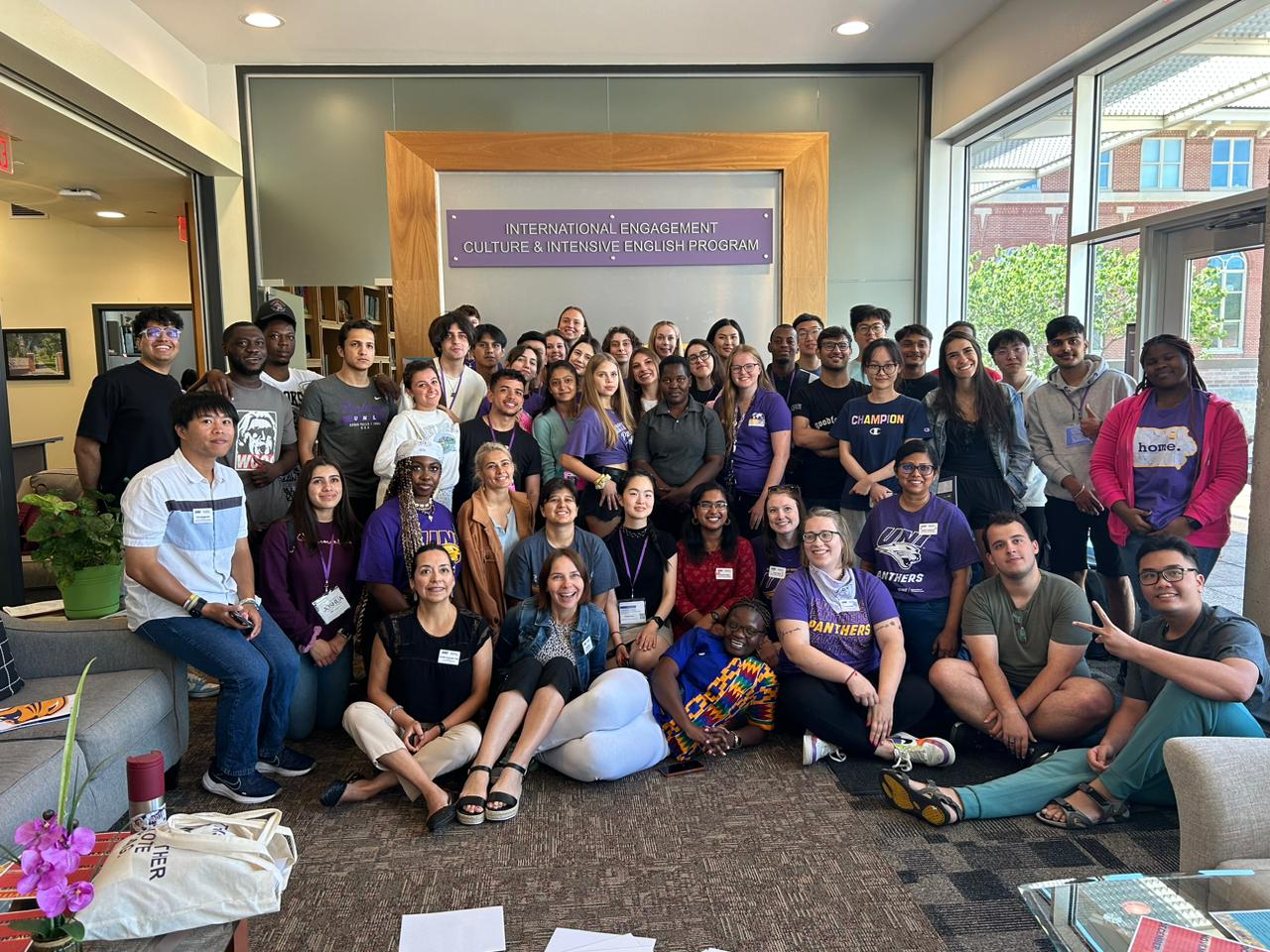Apply
Apply now! Start your application to create an admission file and connect with the CIEP admissions assistant. Supporting documents can be uploaded with the application or sent later to ciepadmissions@uni.edu.

Two ways to apply
Online Application
Fill out the CIEP Application and upload supporting documents.
Paper Application
Download a Paper Application and email a PDF to ciepadmissions@uni.edu, turn it into our office staff, or mail it to the CIEP office.
CIEP Address:
UNI Culture & Intensive English Program
Maucker Union Rm 113
University of Northern Iowa,
Cedar Falls, Iowa 50614-0156 USA
Admissions and application information
- How do I apply?
We will need:
- Completed online application form or paper application
- Proof of residency (passport or green card)
- Financial Guarantee (readable and showing USD 6,000 or more)
- $75 application fee
- How can I pay for the application fees?
The application fee includes all costs related to application processing, mailing (when applicable), and placement testing. The fee can be paid with cash, check, money order, or wire transfer. The application fee is nonrefundable.
- What if I need to defer my admissions?
If, for any reason, a student cannot attend the session he or she applied for, the student may request the application to be deferred to a later session. A deferral can only be issued once, and after the second deferral request, a student must reapply to the program. The application fee may be reduced.
- What is the language requirement?
New UNI CIEP students are expected to have the following abilities prior to beginning their first session; if students do not have the skills to perform the following, it may not be possible to enroll in UNI CIEP courses:
- Fluently read and write in a first or native language.
- Understand 1 to 2 sentences in speaking.
- For example, I can order food and coffee at a café, or I can ask for things at a grocery store, such as the conversation below:
- At a café:
- A: Hi, can I order two cups of coffee? With some sugar, please?
- B: Sure. Do you want milk in your coffee?
- A:Yes, milk. And can I have a chocolate cookie?
- B: Yes. Your total is $9.15. Do you want to pay with cash or card?
- A: Cash. Here’s $10.
- At a café:
- For example, I can order food and coffee at a café, or I can ask for things at a grocery store, such as the conversation below:
- Read and understand 1 to 3 paragraphs in English with present, past, and future verbs.
- Here is an example:
- The first modern form of public transportation was the electric streetcar. These streetcars operated along rails in the street. They were the major form of public transportation for many years. Public buses also became more available, but with a car, people could go anywhere they wanted. They could come and go at any time. They did not have to wait for a streetcar, a train, or a bus. Everyone wanted a car. However, they were very expensive.
- Now, public transportation is common all over the world. Almost all countries have buses, trains, and subways. For example, Moscow and Tokyo have very large systems. In recent years, China also expanded its use of subways. Now, four of the twelve largest subway systems are in China. In the future, super-fast trains will be available. A trip that is 2 hours now will be only 45 minutes.
- Here is an example:
- Write 4 to 8 sentences about a topic. I can write with and, but and or in sentences.
- Here is an example:
- Many people work in the center of Sao Paulo, Brazil, but they do not live there. They live in suburbs outside the city. In suburbs, the houses are cheaper. Every day, people travel into the city, and there is a lot of traffic. City leaders are trying to find a solution to the problem. They are building better subways and trains. Also, they want to build cheaper houses in the downtown area. Leaders are making some changes.
- Here is an example:
- Write sentences with be (is, am, are) and have and has. I can write questions with who, what, when, where, why and how.
- Here are some sentences with be.
- The dress is red.
- I am twenty years old.
- The women are in my family.
- Here are some sentences with have and has.
- I have a brother and two sisters.
- My brother has two sons.
- Here are some examples of questions:
- Where is your school?
- What is your address?
- Here are some sentences with be.
- Write with simple past of be (was, were) and regular verbs (-ed).
- Here are some examples:
- I finished school last month.
- I studied English for five years.
- School was not difficult for me.
- I completed all my classes.
- They were very easy.
- Here are some examples:
- What are my next steps?
Once we receive the required documents along with the application fee, your application will be reviewed. If your application is approved, we will request that UNI International Admissions create your I-20. Please allow 1-2 weeks for this process. After we receive your I-20 from UNI International Admissions, we will send you an admission letter, your I-20, housing contract information, and health forms to be completed. If a student has not been reached out to within 2 weeks from application, please reach out to ciepadmissions@uni.edu - they might not have submitted the correct email!
